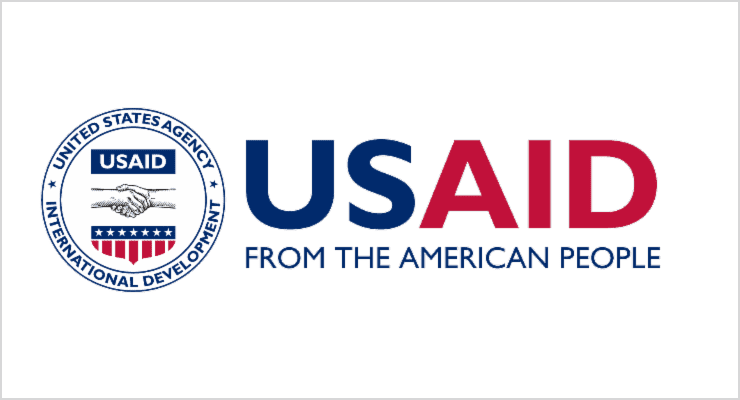The United States Agency for International Development (USAID), through the Regional Contracting Office in Kyiv, Ukraine is seeking applications from qualified organizations for funding of an activity entitled “HealthLink Ukraine.”
The goal of HealthLink is to accelerate Ukraine’s efforts to end HIV as a public health threat by 2030, by improving the access to and delivery of HIV prevention and care services in Ukraine. HealthLink is USAID Ukraine’s flagship President’s Emergency Plan for AIDS Relief (PEPFAR) activity to further Ukraine’s efforts to achieve the Joint United Nations Programme on HIV/AIDS (UNAIDS) and PEPFAR 90-90-90 targets.
HealthLink will complement and contribute to PEPFAR Ukraine interagency efforts to increase the number of PLHIV in Ukraine who know their status, are placed on treatment and are virally suppressed.
Ukraine’s population as of 2016 was estimated at 42.71 million people, excluding residents of Russian-occupied Crimea. Modeling estimates indicate that in 2015 HIV prevalence among 15-49 year olds was 0.9%2, with approximately 16,0003 new HIV infections each year. The first cases of HIV were officially registered in 1987, with a dramatic surge in the mid-1990s until incidence peaked in 2013. The epidemic was driven parenterally by people who inject drugs (PWIDs); however sexual transmission has become the main mode of transmission, especially among sexual partners of PWID. Transmission amongst men who have sex with men (MSM) is concerning, with Kyiv City and Odessa experiencing significant transmission in the MSM population.
Over the last several years, the Ukrainian HIV epidemic response has slowed the epidemic, especially among PWID, and is significantly scaling-up antiretroviral therapy (ART) – with approximately 35%5 of the estimated 224,0006 PLHIV in Ukraine currently on treatment. Currency devaluation, political upheaval and armed conflict in the east of the country have introduced both challenges and opportunities to achieve UNAIDS’ and PEPFAR’s joint 90-90-90 goals.
For example, the economic crisis has made scale-up of ART impossible without changing procurement practices – catalyzing health reforms, such as ‘test and start’, to enable more patients to be on ART while also leading to the adoption of optimized ART regimes.
These changes are largely due to the advocacy efforts of civil society – with key advocacy successes leading to a two-and-a-half-fold increase in government spending on HIV programs in 2017 and legislation requiring international procurements for drugs to thwart corrupt practices resulting in significant savings.
Reform has been difficult to execute because of sector vested interests in maintaining the status quo, corrupt procurement practices, and bureaucratic and political inertia. However, significant, yet fragile, progress is being made to increase political support for health reforms. Current reforms are based on a public health approach – providing an opportunity to expand and integrate HIV services within the developing health system.
Decentralization provides local communities more control of their resources, leading to potential for local level innovations, and creative solution for service delivery.
Particular to the acceleration of HIV prevention, care and treatment, policies that facilitate intensified community case finding, increased diagnosis of HIV infection, early linkage to ART treatment services, and increase the capacity of the health system to treat and retain the impending significant increase in ART patients are needed. This will include decentralized and integrated models of HIV treatment that continue to provide high-quality services to meet the needs of all people living with HIV (PLHIV).
Innovative interventions are vital to identify hard to reach populations (such as older and/or concealed MSM, PWID sub-populations, etc.) improve treatment initiation among groups who are reluctant, and promote treatment adherence as more PLHIV initiate ART.
HealthLink is USAID Ukraine’s five year flagship PEPFAR activity to further Ukraine’s efforts to achieve the UNAIDS and PEPFAR 90-90-90 targets. The activity will increase demand for and access to HIV services, increase the numbers of PLHIV who know their status and are linked to care, address gaps in the HIV service cascade, and reduce stigma and discrimination toward PLHIV and KPs with higher risks of being infected with HIV.
The expected period of implementation of HealthLink is October 1, 2017-September 30, 2022. Eligibility for this funding is restricted to local Ukrainian entities. Subject to the availability of funds, USAID intends to fund a program in an amount not to exceed $22,000,000. The U.S. Dollar amount will be funded from USAID appropriated funds, to be allocated over a five-year period.
Further details are available via Funding Announcement: RFA-121-17-000001. Applications are due May 15, 2017 at 16:00 Hours Local Kyiv Time.



